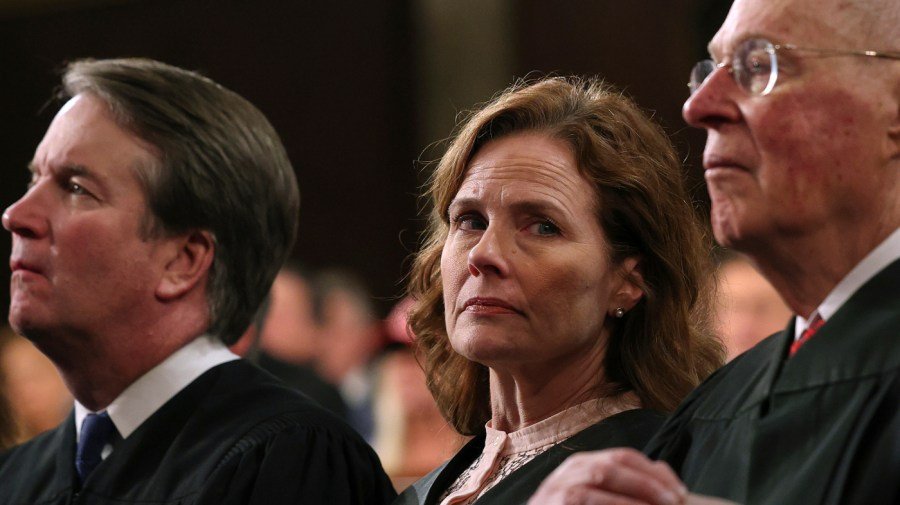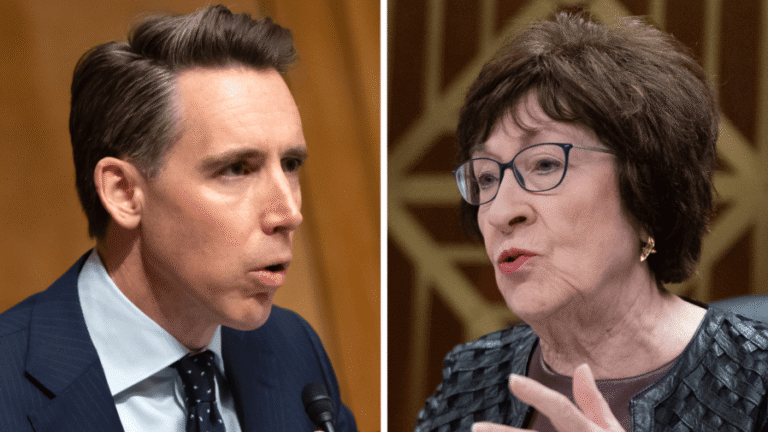
The Supreme Court’s decision in a birthright citizenship case, handed down on Friday, has ramifications way beyond President Trump.
The big, long-term impact is the granting of greater leeway to future presidents as well as to the current one. The power of the courts to curb actions emanating from the Oval Office has been significantly diluted.
Whether that is a good or bad thing is in the eye of the beholder — refracted through the lens of party loyalties.
For now, the decision is being celebrated by Republicans and lamented by Democrats. Those roles are nearly sure to reverse the next time a Democratic president moves into the White House.
The high court did not, in fact, weigh in on the constitutionality of Trump’s executive order to shift the definition of birthright citizenship.
Trump wants to change the automatic assumption that people born in the United States are automatically American citizens, regardless of the immigration status of their parents.
That push is framed by immigration hawks as a battle to thwart the concept of ‘anchor babies’ – infants born in the United States, allegedly in order to put their unauthorized-migrant parents effectively outside the reach of deportation efforts.
But liberals argue the Trump effort is unconstitutional on its face, given the Fourteenth Amendment’s apparently clear statement that, “All persons born or naturalized in the United States, and subject to the jurisdiction thereof, are citizens of the United States.”
Liberals also assert that the clause about “jurisdiction” is largely beside the point where immigration is concerned, since unauthorized migrants are still subject to the laws of the United States while they reside within its borders.
In any event, lower courts have found against the Trump administration on the question, the administration has appealed and it is likely that the specific question will end up before the justices yet again.
But for now, the court by a 6-3 majority has circumscribed the ability of district courts to block a law or presidential action. The ruling was, in the end, akin to a party line vote, the six conservative justices – three of whom were nominated by Trump during his first term – outvoting the three liberals.
Lower courts will no longer be able to issue a “universal injunction” – that is, an injunction that bars enforcement of a presidential order nationwide. Instead, decisions in those district courts will only be binding upon the parties involved in each case.
“A universal injunction can be justified only as an exercise of equitable authority, yet Congress has granted federal courts no such power,” Justice Amy Coney Barrett wrote, delivering the majority opinion. Barrett also warned about those – including her colleague Justice Ketanj Brown Jackson – who she said would try to thwart an “imperial presidency” by empowering an imperial judiciary instead.
The new reality will be beneficial to the current president and his successors. But it could also be messy, given that it opens a up a vista in which presidential edicts are lawful in one set of states – presumably those whose ideological coloring is the same as that of the incumbent in the Oval Office – and unlawful in the rest, at least until the Supreme Court settles the matter.
Trump, who made a hastily convened appearance in the White House briefing room after the ruling was announced, contended that the court had delivered “a monumental victory for the constitution, the separation of powers and the rule of law.”
It was, to be sure, a major win at the nexus of politics and jurisprudence for Trump and his allies. The president and key aides like Stephen Miller have repeatedly assailed judges who ruled against them as exceeding their legitimate powers and even engaging in a “judicial coup.”
Justice Sonia Sotomayor, who wrote the main dissenting opinion, objected in strenuous terms, saying that her minority position was spurred by her desire to “not be complicit in so grave an attack on our system of law.”
“No right is safe in the new legal regime the Court creates,” Sotomayor wrote. “Today, the threat is to birthright citizenship. Tomorrow, a different administration may try to seize firearms from law-abiding citizens or prevent people of certain faiths from gathering to worship.”
Sotomayor also issued a bleak warning about the way in which such an expansive view of executive power could be used in the future to hollow out the rights that had been previously enjoyed – just as the doctrine of birthright citizenship had been seen as settled law until relatively recently.
The liberal justice, nominated to the high court by President Obama, was also far more willing than her conservative colleagues to engage with the merits of the arguments over birthright citizenship.
She alleged that the focus on universal injunctions amounted merely to the Trump administration playing a “different game” because it had no realistic chance of making its more limited interpretation of birthright citizenship work.
On the latter point, she wrote, Trump had “an impossible task in light of the Constitution’s text, history, this Court’s precedents, federal law, and Executive Branch practice.”
On the bigger question of how the legal processes will now work, some worries were voiced even by one of the conservative judges who concurred in the ruling, Justice Brett Kavanaugh.
Referring to the period where different court orders could hold sway in different parts of the nation, Kavanaugh argued that “there often (perhaps not always, but often) should be a nationally uniform answer on whether a major new federal statute, rule, or executive order can be enforced throughout the United States during the several-year interim period until its legality is finally decided on the merits.”
He added: “It is not especially workable or sustainable or desirable to have a patchwork scheme, potentially for several years, in which a major new federal statute or executive action of that kind applies to some people or organizations in certain States or regions, but not to others.”
Such concerns are the thorniest questions to emerge from Friday’s decision.
The Memo is a reported column by Niall Stanage.

